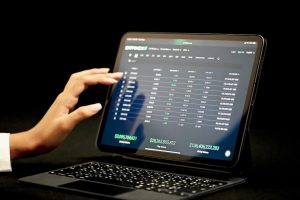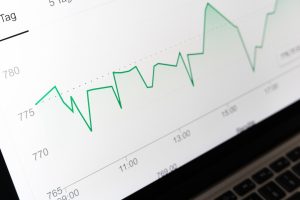As an individual, you can have as many forex accounts as you want, but it is essential to understand the risks involved and the regulations surrounding multiple accounts. In this article, we will explore the reasons why someone might have multiple forex accounts and the benefits and drawbacks of doing so.
Firstly, let’s define what a forex account is. A forex account is a type of account used to trade foreign currencies, also known as forex or FX. Forex trading involves buying and selling currencies in the hope of making a profit from the fluctuations in their value. Forex accounts can be opened with brokers, banks, or financial institutions that offer forex trading services.
Now, let’s delve into the reasons why someone might have multiple forex accounts. One of the main reasons is diversification. By having multiple accounts with different brokers, traders can spread their risk across different platforms, reducing the impact of a single broker’s failure. Additionally, having multiple accounts allows traders to test different trading strategies and compare the performance of different brokers. This can help traders identify the best brokers for their needs and increase their chances of success.
Another reason why someone might have multiple forex accounts is to take advantage of different trading conditions. Different brokers offer different spreads, commissions, and leverage levels, which can affect a trader’s profitability. By having accounts with multiple brokers, traders can compare the trading conditions and choose the one that suits their trading style and goals.
However, having multiple forex accounts also comes with some drawbacks. Firstly, managing multiple accounts can be time-consuming and complicated, especially if the accounts are with different brokers. Traders need to keep track of their balances, trades, and fees across all accounts, which can be challenging.
Secondly, having multiple accounts can lead to over-trading and emotional decision-making. Traders may feel the need to make trades on all their accounts, even when the market conditions are not favorable. This can lead to losses and undermine the trader’s overall profitability.
Lastly, having multiple accounts can be costly. Most brokers charge fees for opening and maintaining accounts, and traders may also need to pay for additional software and tools to manage their accounts effectively. Therefore, traders need to weigh the benefits and drawbacks of having multiple accounts before deciding to open them.
In terms of regulations, traders need to be aware of the rules surrounding multiple forex accounts in their jurisdiction. In the United States, for example, traders need to comply with the National Futures Association’s (NFA) rules, which limit the number of forex accounts that an individual can have. According to the NFA, traders can have up to 10 forex accounts, provided that they are not used for fraudulent activities or to evade regulatory requirements.
In conclusion, as an individual, you can have as many forex accounts as you want, but it is essential to understand the risks involved and the regulations surrounding multiple accounts. Having multiple accounts can be beneficial for diversification and taking advantage of different trading conditions, but it can also be time-consuming, costly, and lead to over-trading. Therefore, traders need to weigh the pros and cons of having multiple accounts before deciding to open them.






